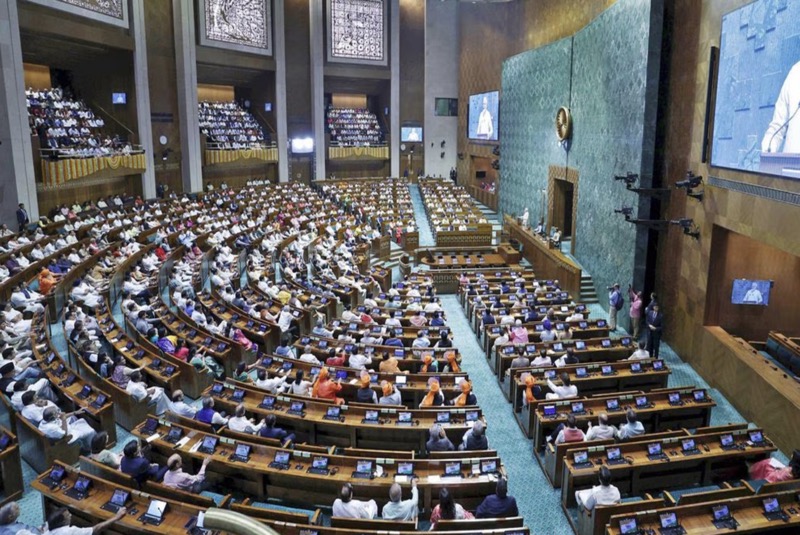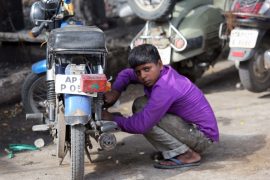In May 1970, the late Prime Minister Indira Gandhi exchanged sharp words with the late Atal Bihari Vajpayee in the Lok Sabha in which the latter, the most eloquent warden of the Jana Singh, called for the Indianisation and nationalisation of India’s minorities. Some parliamentarians found parts of Mr Vajpayee’s speech so offensive that they called for certain sections to be expunged. Mrs Gandhi did not support the expungement and instead sought that those words remain etched in parliamentary memory as a reminder of Jana Sangh’s divisive policies.
Rule 380 of the Rules of Procedure and Conduct of Business in the Lok Sabha states that the Speaker has discretionary authority to expunge words that are “defamatory, indecent, unparliamentary or undignified.” Despite the acerbic nature of the repartee and high-decibel opposition of views, a certain dignity was preserved in that exchange of 1970.
Feeling a sense of nostalgia for Mrs Gandhi (the harbinger of the Emergency) and Mr Vajpayee (whose rousing speech to the kar sevaks at Jhandewalan Park a day before the demolition of the Babri Masjid exhorted fundamentalist fervour), two champions of some of the darkest times of Indian democracy, is perhaps revealing of the current state of affairs.
In the era of Twitter/X, political oratory has undergone paradigm shifts with information and communication technology (ICT) changing democratic communication flows. The digital ubiquity of politicians and the ease of digitality now bring political performance into plain public view; often, it is not a pretty sight.
A far departure from being “parliamentary” or “dignified,” the vitriol directed towards women politicians in particular is exceptionally devious. Take, for instance, the tirade faced by Mahua Moitra, the TMC MP, from BJP’s Nishikant Dubey, who referred to her as “Nagar Vadhu” when she questioned the authenticity of his educational degrees submitted to the Election Commission while filing his nomination.
The context is the ongoing cash-for-query case in which the BJP has alleged that Mahua Moitra has accepted bribes from the Hiranandani group to raise questions in the Lok Sabha about Adani’s doings. An allegation of corruption is not new in Indian democratic proceedings, but unfortunately, neither is sexism.
Using sexually charged vocabulary to humiliate, insult, degrade and viciously attack the personhood of women, Indian male politicians have been adept at propagating unparliamentary linguistic practices that attack the dignity of their colleagues.
The offensive term Dr. Moitra was subjected to translates into “bride of the city” or “courtesan,” which are mere euphemisms. Yet, these suffice to demonstrate the intent behind the vitriol.
In 2016, Mayawati was called a “vaishya” (meaning prostitute) by the Vice President of BJP’S UP chapter, Dayashankar Singh. In 2017, Akhilesh Yadav stated that she takes up too much space “like an elephant,” alluding to her party’s symbol and resorting to body shaming as a tactic of humiliation.
When the Trinamool Congress received foreign funding in 2011, Anil Basu, a CPI (M) MP from Arambagh, asked where Ms. Mamata Banerjee got the money. Using the Bengali pejorative “bhatar”, referring to an illegitimate male partner, Basu referred to Sonagachi, often considered Asia’s largest red-light area.
Sonia Gandhi has been at the receiving end of verbal abuse for decades. She has been referred to as a “bar dancer,” “a Vishkanya,” “an escort from Pakistan”, and other expletives that are a direct assassination of her character by various people, including Arnab Goswami and Subramaniam Swamy.
While it is not new for public figures to be trolled and humiliated, the sexual nature of jibes aimed at women parliamentarians requires scrutiny. These abuses primarily attack a woman’s character and honour to create a narrative of cultural impurity, presenting her as “morally polluted” and, therefore, not fit to lead or participate in public work.
The double standards in framing such moral pollution and honour are evident in how honour is constructed differentially for men and other genders. An honourable man is one who keeps his word, protects and provides for his family and nation, and is a patriot. In contrast, female honour is only about sexual reputation and chastity.
Research by the Inter-Parliamentary Union, with respect to online abuse faced by female politicians, reveals that, across 39 countries surveyed, 81.8 per cent of women parliamentarians have been at the receiving end of different forms of sexually charged trolling and other forms of cyber violence that negatively impact their psyche.
Over 65 per cent of those surveyed have received humiliating and sexist remarks, including threats of mutilation, death, rape, abductions and beatings.
At a time when the Women’s Reservation Bill (or the Nari Shakti Vandan Adhiniyam) has received the President’s assent, existing women parliamentarians are experiencing a range of abuses. This brings us to an important question: What sort of democratic environment are we fostering and enabling?
If parliamentary language has collapsed into a puddle of indignity, and if parliamentarians cannot uphold linguistic decorum, democracy itself is under threat. Parliamentarians are meant to be exemplars of inclusive behaviour, exemplifying peaceful public relations, even in dissent—particularly in dissent.
Hostility and anger are inevitable when confronted with differences of ideology, class, caste, religion and ethnicity within democratic institutions; however, anger cannot spill over to hate, and hostility should not manifest as abuse.
As the popular parlance goes, “When threatened, the first thing democracy will give up is democracy, ” which is a bleak reminder of what parliamentary processes will regress into in the coming years.
-30-
Copyright©Madras Courier, All Rights Reserved. You may share using our article tools. Please don't cut articles from madrascourier.com and redistribute by email, post to the web, mobile phone or social media.Please send in your feed back and comments to editor@madrascourier.com











